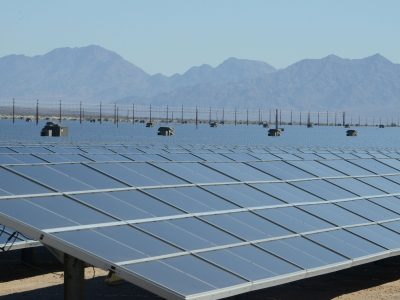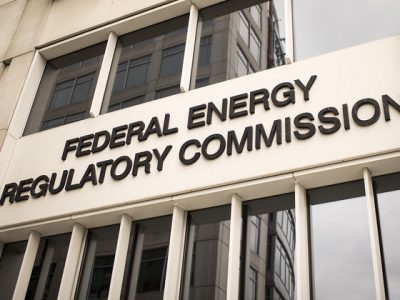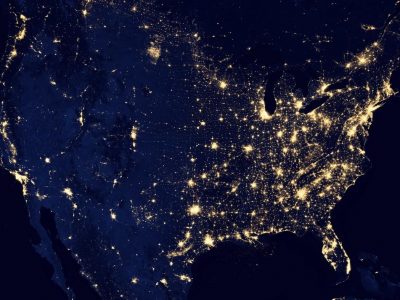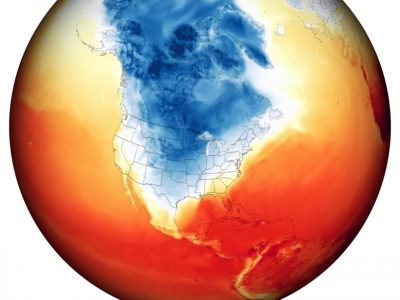electricity
The Color PURPA
A Win for Solar– And a Glimpse of Life After Chevron
The majority in a recent case — an Obama appointeet and a Trump appointee — ruled in favor of renewable energy. Even without Chevron deference, they were able to conclude that the statute favored solar producers. And unlike a win under Chevron, this one can’t be reversed by a more conservative agency — it’s etched in stone.
CONTINUE READINGCan Public Ownership Fix Our Electricity Woes? It’s Complicated
New UCLA report “Power Struggle: California’s Electric Utility Ownership Dilemma” by Sylvie Ashford, Mohit Chhabra, and Ruthie Lazenby
This post is co-authored by Sylvie Ashford and Mohit Chhabra. California’s investor-owned utilities (IOUs) are under intense scrutiny for causing deadly wildfires and charging some of the nation’s highest electricity rates. Adding to these challenges, IOUs are required to make significant clean energy and grid investments to achieve the state’s goal of a net zero …
Continue reading “Can Public Ownership Fix Our Electricity Woes? It’s Complicated”
CONTINUE READINGWe Need a True Debate Over Income-Graduated Fixed Charges
A state bill to cap the fixed charges utilities can collect in California would shut down an important debate about equity and rate design. Here’s a better way forward.
Electricity rate design is unavoidably technical. It also has huge implications for equity, climate change, and ensuring a grid that works. Rate design can be used to promote many different goals, from efficiency to bill stability, but it always entails distributive decisions. Rate design determines how we distribute the costs not just of electricity, but …
Continue reading “We Need a True Debate Over Income-Graduated Fixed Charges”
CONTINUE READINGReviewing Agency Indecision
The Third Circuit straightens out a quirk in FERC law, to the benefit of renewable energy.
A case decided by the Third Circuit last week is important for two reasons. It clarifies an important procedural issue applying to the Federal Energy Regulatory Commission (FERC). And it upholds an important policy shift regarding renewable energy by the country’s largest grid operator. Since you’re probably more interested in the second point than the …
Continue reading “Reviewing Agency Indecision”
CONTINUE READINGWill public power advance decarbonization?
Increasing public control of energy systems may not facilitate decarbonization
Over the past few years, there has been a push in both Europe and the United States for a “Green New Deal” in which decarbonization efforts would be pushed by aggressive, direct government investments in clean energy technology and infrastructure. But in much of the United States and in Europe, large portions of the electricity …
Continue reading “Will public power advance decarbonization?”
CONTINUE READINGAdvancing renewables through electricity restructuring
Reducing barriers to siting new electricity generation can help advance renewable energy production
Our electricity system will be crucial to decarbonization efforts, both because much of our current energy comes from electricity, and because decarbonizing sectors like transportation will require significant electrification. And electricity is the sector where we have had the most success in decarbonization so far in the United States. But there is still more to …
Continue reading “Advancing renewables through electricity restructuring”
CONTINUE READINGWays of Price Making, Inflation, and Energy Price Shocks
This post was originally published on the Law and Political Economy blog as part of a symposium on inflation. Energy prices have been much in the news over the past several months, occupying a prominent place in mainstream discussions of inflation. Higher prices for oil, natural gas, coal, and electricity are all pushing up inflation across …
Continue reading “Ways of Price Making, Inflation, and Energy Price Shocks”
CONTINUE READINGGetting Down to the Nitty Griddy
The Texas Blackout and the Politics of Price Making
As has been widely reported over the past week, some Texas electricity customers are now facing astronomically high electricity bills as a result of the recent power grid crisis. Under the Texas system, which is as close to a fully deregulated system of electricity provisioning as we have in the U.S., retail customers are allowed …
Continue reading “Getting Down to the Nitty Griddy”
CONTINUE READINGA Tale of Two Blackouts
Learning from the Texas and California Power Grid Failures
The Texas blackouts earlier this week have reminded us once again of the vital importance of electricity as part of the basic infrastructure of everyday life and the terrible consequences that ensue when the grid fails. Recent reports indicate that dozens of people have died as a result of the extreme weather and blackouts and …
Continue reading “A Tale of Two Blackouts”
CONTINUE READINGGuest Bloggers Alice Kaswan and Kirsten Engel: Untapped Potential: Emissions Reduction Initiatives Beyond Clean Power Plan Are Warranted, Workable
New Report Analyzes Potential for Further Emissions Reduction from Existing Sources
Guest post by Alice Kaswan (University of San Francisco School of Law), Kirsten H. Engel (University of Arizona School of Law) It’s been a month since the D.C. Circuit heard oral arguments on the Clean Power Plan, and the nation is in wait-and-see mode. But our report, Untapped Potential: The Carbon Reductions Left Out of …
CONTINUE READING









